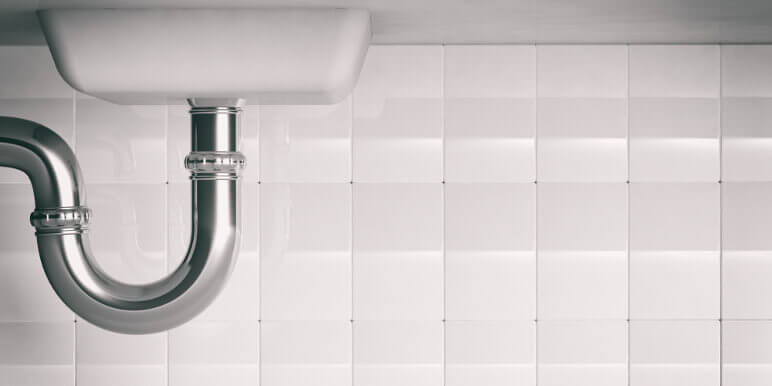Stallion Plumbing Blog
Plumbing Articles from Salt Lake City, UT.
5 Signs Your Drain Pipes Need to Be Cleaned

Every year, about 20 percent of all Americans experience a clogged toilet, but toilets aren’t the only drain that can become clogged in your home. Drain clogs can happen from a variety of factors, from food in a sink to toys that fall into a toilet.
When you experience clogged drain pipes, the best course of action is to have your drains cleaned. Clearing out the clog and cleaning the pipes will remove both the clog and other debris which may have collected. This makes a clog less likely to occur again in the future and ensures that your sinks and other water fixtures are able to operate effectively.
Clogged Drain Pipes
The most significant sign that you are long overdue for a drain cleaning is if there is a full clog in your pipes. Water that sits in your sink, shower, or toilet without going down the drain is the clearest indication that you’re going to get that your pipes are dirty.
If you are suffering from chronic clogs, there are a few things that you can do to prevent them in the future. Putting strainers over the drains can trap hair, food and other particles that could form blockages. You may also want to avoid using the garbage disposal.
You should also make sure that you’re not flushing anything down the toilet besides waste and toilet paper. Paper products, even baby wipes, won’t break apart and can form solid blockages over time. In the kitchen, it’s also a good idea to run hot water down your drains for a few minutes every week. The heat can melt fat and grease which can build up over time.
The more often that your drains become clogged, the more in need you are of a serious cleaning. Chronic clogs mean that debris has collected or caked on, forming partial clogs in your pipes that restrict the flow of water without blocking it completely
Slow Draining Drains
In a very similar vein to the above point, you are in need of drain cleaning if your drains are draining slowly. If this happens, it indicates that your plumbing is partially clogged with debris. While this won’t affect the function of your plumbing in the short term, it’s still important that you clear out the blockage.
You should address slow draining drain pipes before they form a complete clog. Full clogs place undue stress on the connections of your pipes, making leaks and damage more likely.
Gurgling and Glugging Sounds
Another sign of a partial clog in your drain pipes is the presence of a glugging or gurgling sound coming from your pipes as water passes through them. Irregular gurgling means that there is a blockage in your pipes that prevents the smooth flow of air through your pipes. Instead, water will pass through in spurts.
The process is quite like pouring milk out of a carton. Tipping it over too far causes an uneven flow because air cannot move into the carton, whereas pouring slower creates a smooth flow.
Strong Smells
Beyond drainage issues, you should also be wary of any unpleasant smells coming from your drains. A rotting smell, the smell of sewage, or any other strong odor that permeates the room and won’t go away from cleaning other surfaces indicates at least a partial clog.
This smell comes from waste, food or other debris that is unable to pass down the drain pipe. You don’t want to let this sit, as the smell is unpleasant and can attract pests. If there are no drainage issues, the problem likely lies with residue along the sides of your drain.
You can remove this residue and improve the smell by flushing a mixture of vinegar and hot water down your drain. However, this will do nothing if there is a real clog in the pipes. A proper, professional cleaning is the only way to remove solid waste.
Backing Up Water or Overflowing Toilets
Clogged drains that you have continued to use can lead to sewage and water backing up through your drains. This can take the form of sewage sitting in your sinks and tubs or toilets overflowing as you flush them.
In some cases, several drains throughout your home can begin to backflow. This happens when the sewer drain line in your home becomes clogged. The sewer drain line is the main line that all other drain pipes feed into.
If the sewer line becomes clogged, your drains throughout your entire home will struggle to drain water. Because of their height, you will notice that the drains in your basement and lowest level will begin to back up first. A clogged sewer drain will affect multiple drains at once, instead of a single one at a time.
You should avoid using any of your plumbing until a professional has cleaned out the drain pipes. Sitting sewage and wastewater in your home poses a serious health hazard, and should be addressed straight away.
Have Your Drain Pipes Cleaned Today
You should have your pipes cleaned on a regular basis. Allowing clogs to become a chronic problem places a great deal of stress on your plumbing. Pipes will be at a much higher risk of springing a leak or bursting when clogged.
Being able to identify these five signs of drain clogs makes it much easier for you to figure out when to talk to a plumber before more serious issues, like burst drain pipes, occur. To address any plumbing problems or questions you may have, even if not related to drain clogs, feel free to contact us today. Our team of trained professionals is more than happy to work with you to find the best solution for you.

0 Comments